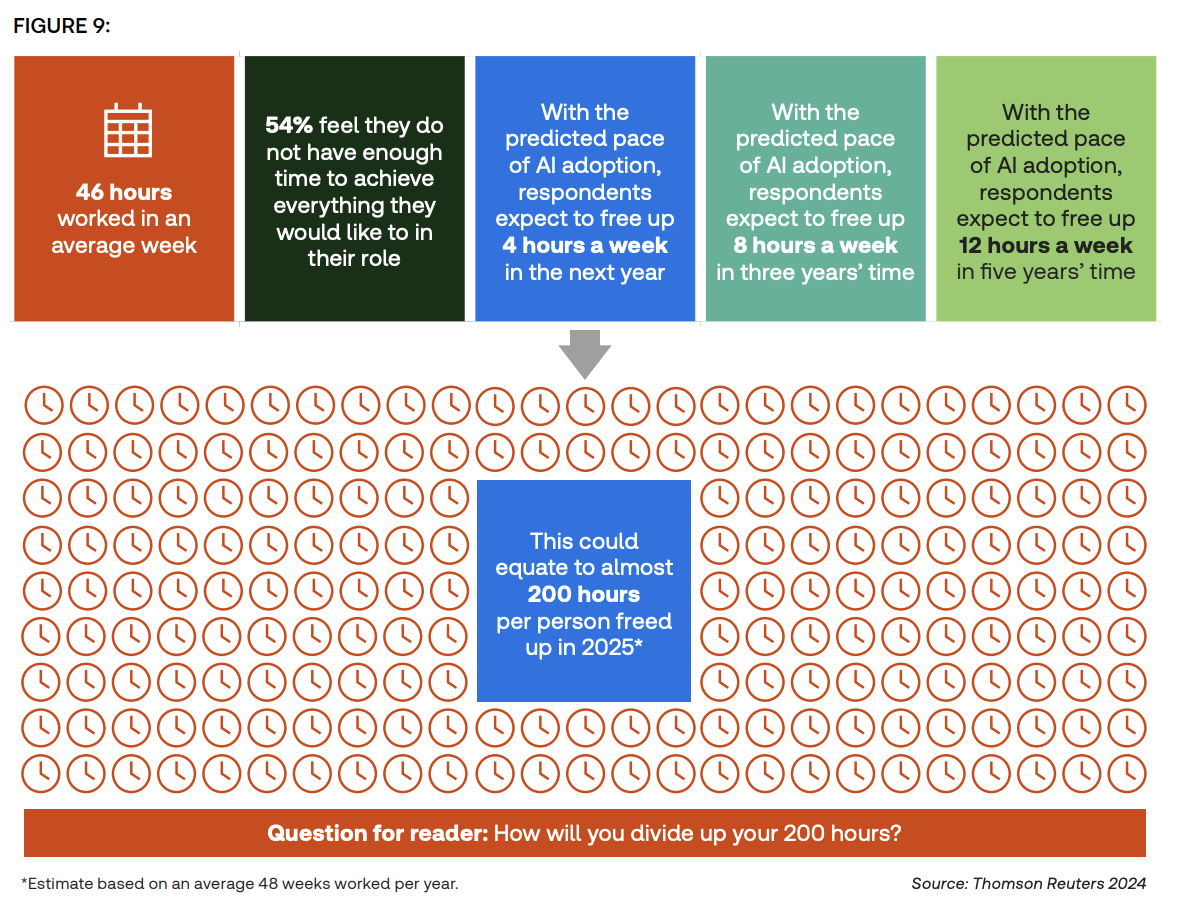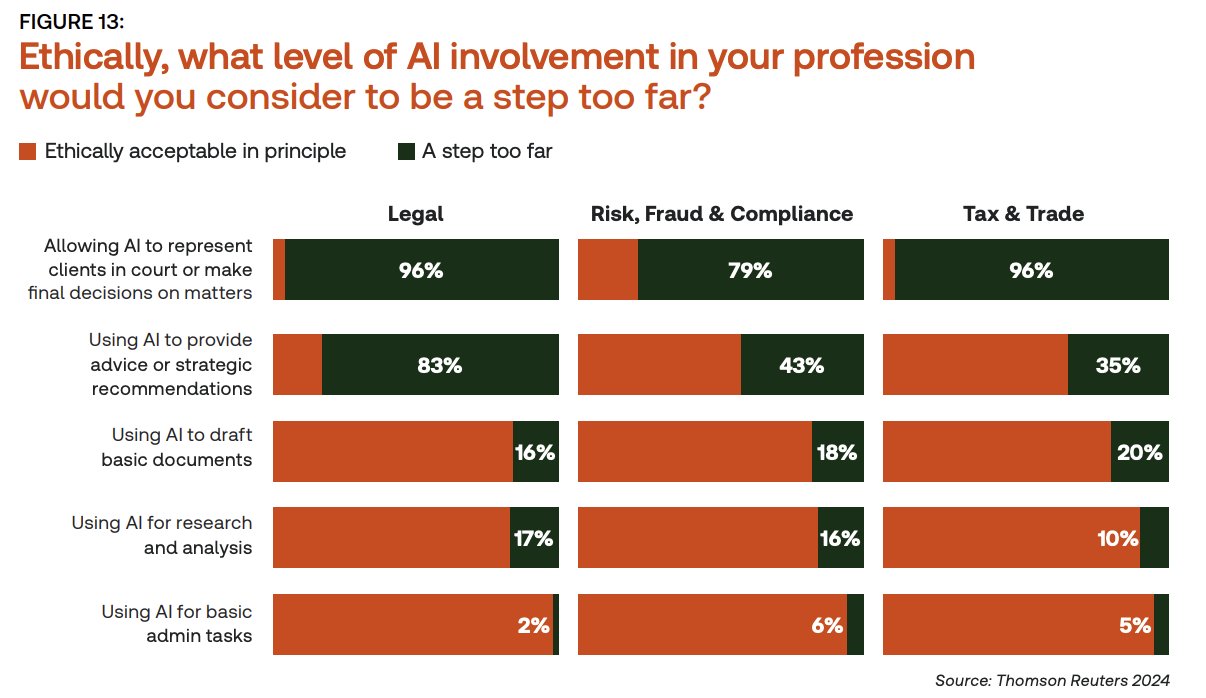
Economic impact of AI's time-saving benefit also 'significant'

Professionals across the world expect to free up to 12 hours a week in five years by using artificial intelligence tools, according to a new report.
The report, released by Thomson Reuters, surveyed 2,200 professionals and C-level corporate executives from over 50 countries to determine how AI is impacting employees and workplaces.
It found that respondents expect to save up to four hours a week in the next year by using AI, going up to eight hours a week in three years.
And in five years' time, respondents said they expect to save up to 12 hours a week thanks to AI.
"That means, if the average professional works approximately 48 weeks of the year, this will equate to roughly 200, 400, and 600 hours, respectively, freed up over the course of the year," the report read.

The findings add stronger proof to predictions that AI will help save employees a lot of time in the workplace.
Steve Hasker, President and CEO of Thomson Reuters, added that the potential economic impact of time-saving benefits from AI will also be "significant."
"For a U.S. lawyer, the time saved could translate to up to $100,000 a year in additional billable time, and we can expect similar productivity gains across other professions," Hasker said in a statement.
The survey also asked its respondents what task is "too far" for AI use.
Ethically, most of the respondents agreed that using AI for basic admin tasks is "ethically acceptable in principle."
Using AI for research and analysis, as well as drafting basic documents is also largely accepted for ethical AI use, according to the report, but using to advice or recommendations is not endorsed.

"The responsible use of AI is crucial, with nearly two-thirds of professionals stressing human oversight," Hasker said. "As we navigate this change, we must remember the future of AI is ours to shape."